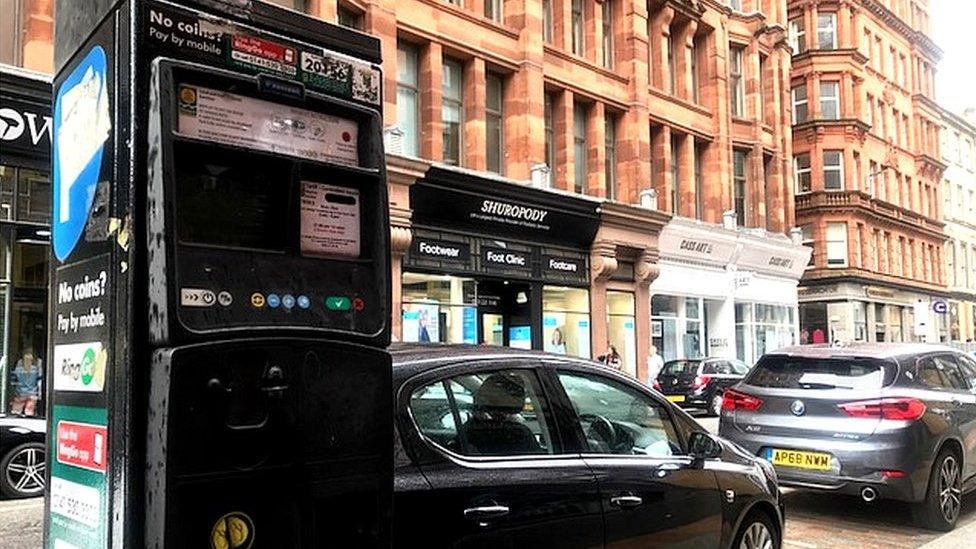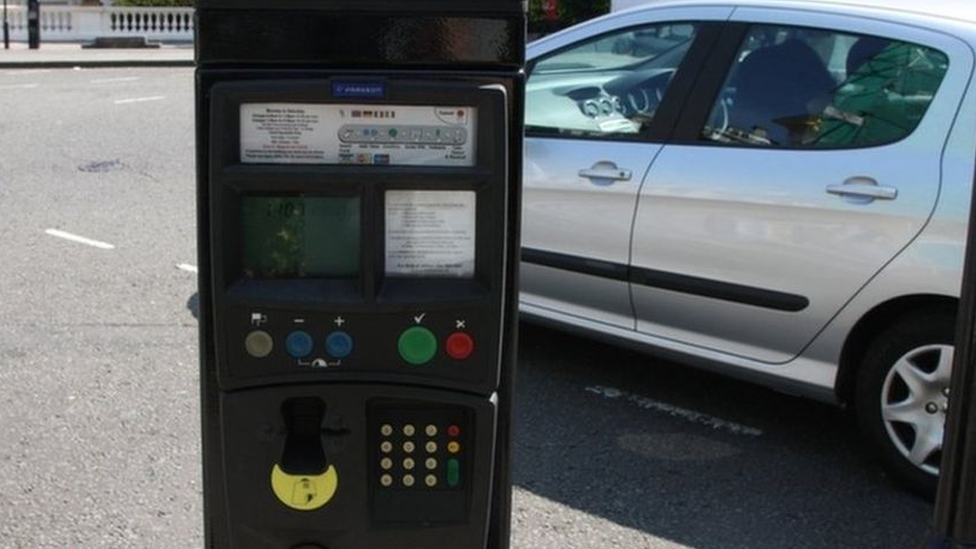On-street parking charges to double across Glasgow
- Published

Parking charges on hundreds of Glasgow streets are set to double from later this month.
On-street pay and display fees will rise from 20p for 15 minutes to 40p from 28 August.
Resident parking permits are also due to rise. Certain areas will see an increase from £85 annually to £98 on renewal.
A council spokesperson said the "vital" increase in charges would help maintain road space and promote road safety.
Long stay parking for over an hour up to three hours currently costs 40p for every 15 minutes and will increase to 60p.
Dozens of inner city centre streets, including Blythswood Square, Trongate, High Street and Union Street, will see a rise from £1 to £1.20 for 15 minutes, up to a maximum stay of two hours.
City centre charges were last increased four years ago when Sunday parking charges were introduced.
Streets in the Anderston, Necropolis, Barras, Tradeston and Kingston areas will be impacted, as well as areas in Cranstonhill, Sandyford, Woodlands, Kelvingrove, Dowanhill, Partick and Yorkhill.
'Illogical and misguided'
The council suspended parking charges in March till July 2022 to help support key workers during the Covid-19 pandemic.
Conservative councillor Thomas Kerr has called the decision to double fees "illogical and misguided" and said his party would stand "firmly against these charges."
He said: "Businesses are struggling with ever-increasing costs and are only just getting back on their feet after the pandemic.
"The last thing they need is the council imposing increased charges on motorists and deterring them away from the city centre and our high streets."
However, the council said the move would benefit city businesses by increasing customer footfall.
A council spokesperson said: "Charges, permits and enforcement are all vital for managing the city's finite road space and help ensure equitable access to limited parking spaces across the city, particularly in areas of high demand.
"It promotes a turnover in spaces for other drivers, which helps increase footfall in town centres across the city, and encourages better use of under-utilised car parks.
"Parking controls are also a key part of the work to promote road safety, easing difficulties with loading and unloading and supports efforts to create a shift to greater use of more sustainable forms of transport."
Related topics
- Published21 June 2019
